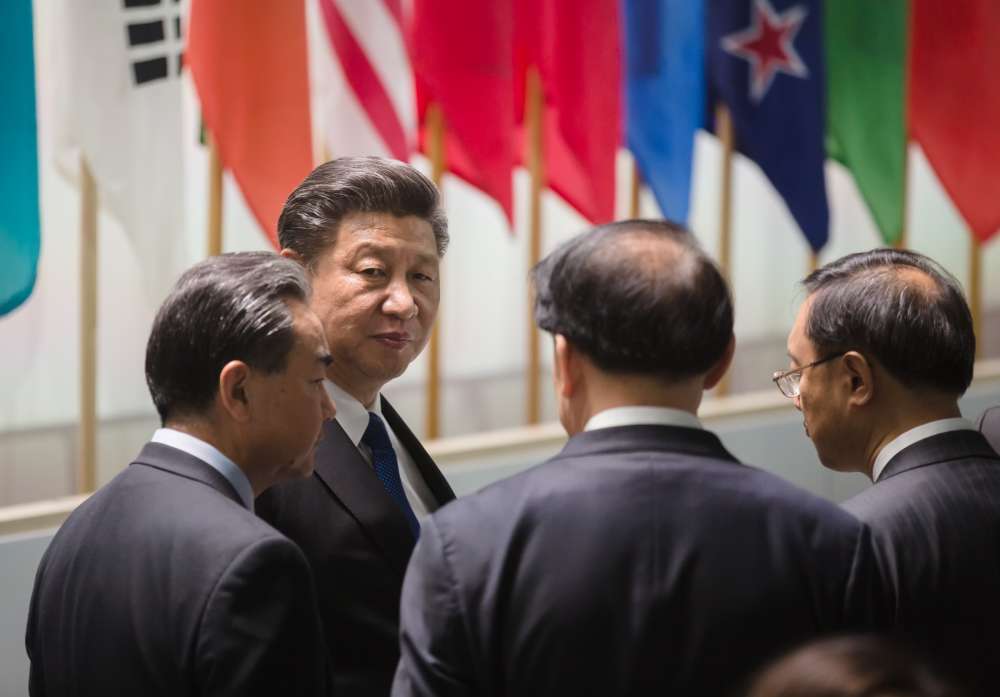How (Not) to Deal with the Vulnerabilities of Democracies to Outside Influence

For the first decade after the end of the Cold War, democracies in North America and Europe felt secure. Twenty years ago, 9 – 11 added a sense of insecurity in the US and other European countries targeted by terrorism. Democracies reacted with the “war on terror” that included a lot of self-defeating overreach that, in turn, ended up weakening democracy.
In recent years, democracies have experienced another dimension of vulnerability: authoritarian states like China and Russia influencing democracies. The Kremlin’s disinformation campaign during the 2016 US elections came as a rude awakening. After 1989, Western democracies grew used to a state of affairs in which they influenced other non-democracies, but were not on the receiving end themselves. Most Western democracies had forgotten about the Cold War, when influencing and interference efforts were standard business. In 1974, Helmut Schmidt became German Chancellor after his predecessor Willy Brandt was forced to resign when authorities discovered that a close aide was a spy planted by the intelligence service of the German Democratic Republic. But those experiences had long been forgotten – so to many, revelations about the Kremlin’s election interference or Beijing’s efforts to influence open societies came as a shock.
It is a welcome development that as a result of these trends, we have had an increasingly intense debate on how to deal with attempts by authoritarian states to influence democracies in recent years. However, some of the prominent approaches have weaknesses that we need to address. They risk overestimating both the strength of authoritarian efforts as well as the level of virtue and integrity that exists within democracies. After the attempts to influence the 2016 US election, many tend to see Russian President Vladimir Putin and the Kremlin’s Intelligence Services as strategic geniuses. However, there is no conclusive evidence what exact effects the Kremlin’s disinformation efforts had, let alone if they were decisive for Trump’s victory.
Disinformation makes use of existing divides and wedge issues into society. Most disinformation efforts in the US come from within. Outside efforts take advantage of the post-truth information environment created by US media outlets such as Fox News and Breitbart. It was the choices of key US political actors, in particular the Republican Party and its candidate Donald Trump, that allowed the Kremlin-orchestrated leaks of Hillary Clinton’s and the Democratic National Committee’s partially doctored emails to have such an effect in the first place. Had Democrats and Republicans agreed on not using the documents leaked by Russian intelligence for campaign purposes, this would have blunted much of the effect. Reversing the overall decline of political culture in democracies would increase protection against outside disinformation efforts.
At the same time, it is crucial that we increase our evidence base. Social psychology can help us understand better when and how targeted advertising on social media has an effect on voter choices. It was a mistake by many in the media to believe the claims by Cambridge Analytica about their decisive role in the 2016 US election. This was little more than a PR operation by a company seeking to grow its business. As Lotus Ruan and Gabriella Lim (2021), experts at the University of Toronto, have argued, “researchers of disinformation should be as focused on trying to discern the actual effects of propaganda across the entire media ecosystem as they are on the number of clicks, tweets, and likes a campaign receives. Evidence of activity is not the same as evidence of impact.”
Similar problems exist with regard to the increasingly popular concept of “sharp power” that was conceived by the US National Endowment for Democracy (NED) and even found its way onto a 2017 Economist cover. US political scientist Joseph Nye (2018) argues that “whereas soft power harnesses the allure of culture and values to augment a country’s strength, sharp power helps authoritarian regimes compel behavior at home and manipulate opinion abroad.” In the words of the initial NED (2017) study, sharp power “pierces, penetrates, or perforates the political and information environments in the targeted countries.” The term is said to capture “the malign and aggressive nature of the authoritarian projects, which bear little resemblance to the benign attraction of soft power.”
While the term “sharp power” has inspired quite a bit of useful research, it has a number of shortcomings. It overlooks that from the vantage point of authoritarian systems, soft power exercised by democracies is seen as extremely “sharp”. Moscow and Beijing feel threatened since democratic soft power goes to the very legitimacy of their regimes. Precisely because the Chinese party state does not tolerate any challenge to its absolute claim to power does it fight back so hard. Understanding this does by no means equal condoning Beijing’s actions.
In addition, some of the most effective sources of influence of authoritarian states in democracies do not “pierce, penetrate or perforate” any protective layer but come through open doors. Authoritarian states benefit from the one-sided openness of democracies. Whereas China, Russia and others tightly control access to outsiders, democracies are much more open. Many of the most effective efforts to build up stocks of influence come through open doors. Unlike in the Cold War, when the economies of Western democracies and Soviet bloc states were decoupled to a very large degree, today’s effort profit from the high degree of economic and financial integration between democracies and authoritarian states, such as China and Russia. Close economic and financial ties offer convenient ways to build leverage. One of them is to weaponize market access, e.g. by threatening to make access to the Chinese market more difficult for companies headquartered in countries pursuing policies Beijing dislikes. Another way is to simply buy the support of elites in democracies. That doesn’t need to take the form of bribery given that you can legally buy the services of many professional elites, in lobbying, PR, finance, law and also academia. The case of Gerhard Schröder, who is now in the service of the Kremlin, demonstrates that you can even buy former chancellors. Smaller authoritarian states such as Azerbaijan also know how to use this very well as shown by the many revelations about close ties of some German policymakers to the regime.
The best antidote to this is mandatory transparency requirements. Professionals in democracies are free to offer their services to whoever they choose to. But the public deserves to know about this. Transparency is a response to authoritarian influence that uses the power of public debate in democracies. In addition, democracies should invest in institutions that strengthen democracy globally. Most of all, democracies should invest in their own credibility by rejecting enemies of democracy at the ballot box and by abiding by self-professed principled in their actions globally. That is the best way to keep soft power sharp.
This commentary is part of a publication on democracy put together by the Bundeskanzler-Helmut-Schmidt-Stiftung ahead of the 2021 Helmut Schmidt Lecture.







